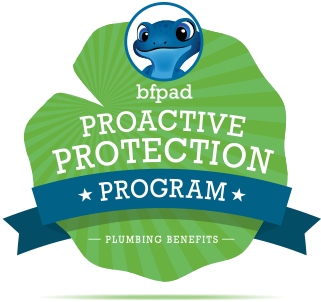
Do You Have These Plumbing Faux Pas in Your Home? | Tips from Your Denton, TX Plumbers
Depending on the age of your house and other factors – if the original homeowner or plumber skimped on costs during the building process, for example – you may have some repairs around the house that will quickly need your attention. But how do you know what to look for and what really matters?
Most Denton, TX, homeowners face the same set of issues, so a little education goes a long way. Survey your house for these signs of out-of-date or problematic plumbing features to give yourself a heads up on what to expect as it ages out of use.
Rusty/Old-looking Hardware
Do you have to push in that handle extra hard, or does it require a gentle touch lest you anger it into springing a leak? Do the water stains and deposits on your showerhead refuse to budge? These issues don’t just pose a visual risk – old fixtures degrade and erode over time, releasing bits of sediment and metal into your water stream. An upgrade is a surefire way to know that you’re using clean water and won’t face a sudden broken handle or unstoppable leak or flood.
Blue Water
Most people assume that products made for plumbing fixtures are automatically safe for use. Unfortunately, some of these products may solve one problem while creating others. Ditch the automatically cleaning tabs if you value your plumbing. They are known to cause breakdown of the “guts” of your toilet. They can also block the flapper, causing your toilet to run, wasting water and money. Before you reach for any magical plumbing solution in a tablet or bottle, ask a plumber for his opinion on whether or not it’s worth the risk of damage.
Drano
Much like cleaning tabs, Drano does more harm than good. Not only does it introduce harsh chemical into the water supply, but its corrosive nature also damages pipes in a way that evenplumbersmay have a hard time easily fixing. The chemical also kills the good bacteria in your pipes, which help break down waste naturally. This breakdown leads to burst or broken pipes, which is a costly repair. Instead, rely on safer solutions, such as saltwater and baking soda and vinegar solutions, or manual cleaning methods, such as the use of a plunger or unclogging tool or call your plumber to ensure the job is done right.
Leaks
A small puddle or leak here or there may be easy to overlook. Many people don’t consider calling plumbers over a small drip below the sink or that slight puddle at the base of the bathtub. But small leaks are indicative of a future big problem. Not only can a leak lead to mold, which is a structural risk to your home, but it can be a sign of a pipe that is going to burst or a fixture that needs some attention. These fixes can be simple when caught in an early stage, so don’t turn a blind eye to that drip in the basement.
Old Rubber Hoses
Rubber hoses are simple to replace, and swapping them of washing machine and dishwasher systems every three to five years ensures you don’t have one burst. Signs that you may have some old hoses attached to your fixtures include finding rust on the connectors, kinks in the hose itself, moisture collection, bulges, and cracks. If you see any of these things, replace it with a stainless-steel hose, as they are far less prone to bursting. Also consider a water hammer arrestor, which reduces pressure the hose endures when water remains in it undrained.
Orangeburg, Clay, or Cast-Iron Sewage Pipe
Most people have no idea what type of pipe is used in a home’s sewage system, but it can be worth a call to plumbers who know what a Denton TX home’s plumbing needs to investigate. Each sewage pipe material has its pros and cons, but some cause more issues than it’s worth. Orangeburg, for example, was used in homes built from the 1860s to the 1970s. This out-of-date material is prone to deforming under pressure and requires either special care or replacement. Gathering knowledge on the type of sewage pipe leading from your house can help you enact some care guidelines that keep everything flowing properly.
Economy Grade Fixtures
Scan the overall quality of the various parts of your plumbing fixtures. Do parts look rusty, cheap, flimsy, or otherwise low quality? Alternately, do you notice solid, non-corroded parts made of stainless materials? If your answer is more of the former, it’s a good bet that your home was made with economy or builder-grade materials. These plumbing elements meet the minimum standards for putting together an economy home or one with the more elaborate expenses spent elsewhere in the house. This doesn’t make them suitable for long-term use, however. Avoid the late-night burst pipe or snapped handle by giving these areas a little preventative love.
Galvanized Pipes
Is your water discolored, or does it flow more slowly than you’d like? Galvanized steel pipes are famous for building up corrosion over years of use. Bits of corrosion in a stream of water are not only unhygienic, but they can pose a health risk. This is especially an issue in areas with hard water. Check to see if you have galvanized pipes by using a strong magnet. If the magnet sticks to the pipe, it’s likely galvanized steel. Other pipe materials like copper, plastic, and lead are not magnetic. Call your trusted plumbers at Bluefrog Plumbing + Drain of North Dallas can help you formulate a plan if you do in fact have galvanized pipes, whether it’s a repair, full or partial replacement, or a plan of action for optimizing your current setup in your Denton, TX home.




















